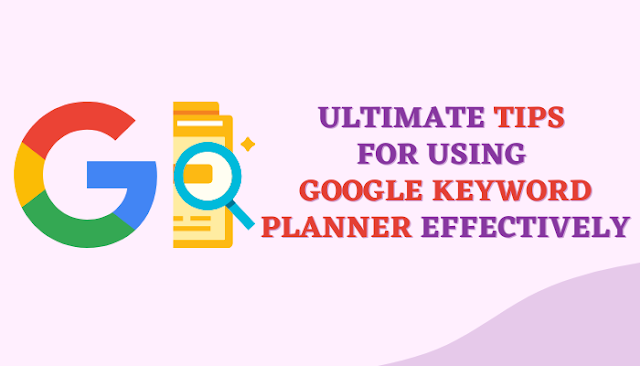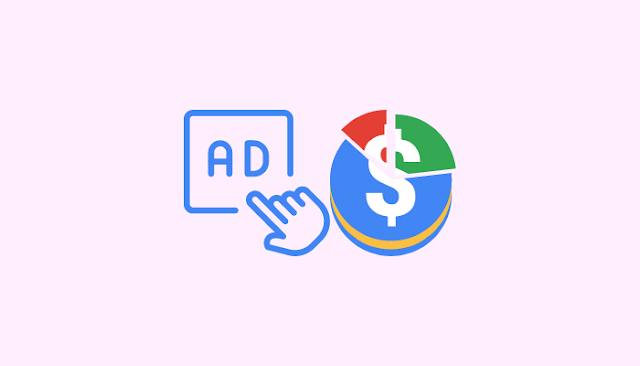Today, it's vital that companies of all sizes have a digital marketing strategy. Whether you're a small startup, a local business, or a worldwide brand, the reality is that Google procedures over 3.5 billion searches daily.
With that volume, Google Ads is the #1 search advertising provider. If your business isn't familiar with how to use Google's Keyword Planner to make Google Advertising, you are missing out.
For your digital marketing to be successful, you need to get a plan, and using Google Keyword Planner can help you create a solid one.
➦ What is Google Keyword Planner?
Google Keyword Planner is a free feature within Google Ads that supports your organization build lists of powerful, relevant key phrases which may help land your pay-per-click (PPC) ads before the right people.
Following a 2020 report from Tech Jury, 80% of businesses use Google Ads for their PPC campaigns - the adoption rate is high since it's user-friendly and powerful!
Are you prepared to dive into the fundamentals of how to use Google Keyword Planner? This summary will research strategies that will raise your PPC advertising to another level.
▹ Filter and Refine
With this tool, There Are Lots of different choices:
▹ New Keywords Search
This is a great keyword brainstorming tool to input a phrase, webpage, or product category to come up with keywords.
▹ Lists for Several Keywords
Once you've created keyword listings, this feature allows you to join them to look for fresh, relevant keywords.
▹ Hunt Trends and Quantity
Show a keyword's search volume and how it trends over time.
▹ Forecasts for Clicks and Costs
Explore keyword performance projections according to your budget and average bid price.
Let's Now Explore Some Of The Conditions and Criteria You Will Encounter When Using The Google Keyword Planner
▹ Reach
Who are you looking to connect with, and how will you “reach” them?
As you learn how to use Google Keyword Planner, you'll discover how to examine a keyword's reach in a couple of different ways.
These include:
Location (the world, a country, region, city).
Language (mission-critical for websites presented in multiple languages).
Search Network.
Negative Keywords (removes any words or phrases you don’t want to see included).
▹ Date Range
Just how keywords trend over a particular period.
▹ Filters And Options For Keywords
Goal your ideal customer and maximize your budgeted dollars.
Average Monthly Searches: Filter Select keywords by typical monthly search volume for a date range.
For smaller e-commerce companies, zeroing in on keywords with mid-level search quantity will be able to help you run targeted advertisements on a small budget.
Ad Impression Share: Forecasts the number of times your targeted audience will see your ad, divided by the total number of Google searches for your selected keyword in the chosen geographic location over the previous month.
Impression Share for Organic Search: The proportion of times your business website appeared in organic search results for the targeted keyword.
Typical Position for Organic Search: This shows how your company's website pages rank in unpaid, organic search results.
Competition: Order your keywords by the amount of difficulty for attaining a high Google Advertising placement.
Filters let you refine your keyword lists but do not get too carried away with limitations, or you can miss possibilities.
Cast a broad net to start with and gradually test and narrow your blockers as you become more familiar with using Google Keyword Planner along with the hints it provides.
Learning how to use Google Keyword Planner can be helpful to help balance the number of keywords with keyword rank.
Keyword Planner can help you discover new search terms and phrases clients are using to discover goods and services quickly related to your business.
You can discover suggested keywords in a few
different ways:
Enter words or short phrases relevant to your enterprise.
Input the URL from a page on your business's website to receive a list of relevant keywords and phrases.
Select a product category that describes your company to explore relevant keywords.
Remember to follow your budget and create keyword selections that are realistic for your Google Ads effort.
➦ Target Your Geographic Audience
Knowing how to use the filters within Google Keyword Planner helps you customize where your ads are displayed based on your geographical location or language collections.
This filter can help you conclude which keywords and ads will be
popular in a selected area or for designing campaigns in other languages.
➦ Placing A PPC Advertising Budget
Every keyword is rated at a low, moderate, or high competition level. Keywords in the high competition category will cost much more per average bid than those in the minimal competition category.
If you realize how to use Google Keyword Planner and translate the data you can glean from it, you may use it to notify your bids for keywords.
After deciding which keywords fit into your advertising budget
like for an eCommerce business, you can produce an eCommerce PPC
management effort around them.
➦ Examine and Maximize
Once you select viable keywords using the Google Keyword Planner, add them to your keyword plan. After that, you can receive a performance prediction that shows the keywords' potential in your budget.
Use the forecast to add and remove keywords until you have a quality list. Knowing how to use Google Keyword Planner will help you examine your advertising program and optimize your budget.
➦ Prepared To Give It A Try?
Finding out how to use Google Keyword Planner will allow your business a useful instrument for creating a successful Google Ads campaign.
As you evaluate the results of each PPC advertisement, you can easily make changes based on what works best.
Ask questions, explore, and continually be on the lookout for ways to improve the efficacy of your digital marketing.
Check out a post on Top 5 Tips To Get More Customers Using Google Ads Optimization right here.



















0 comments:
Post a Comment